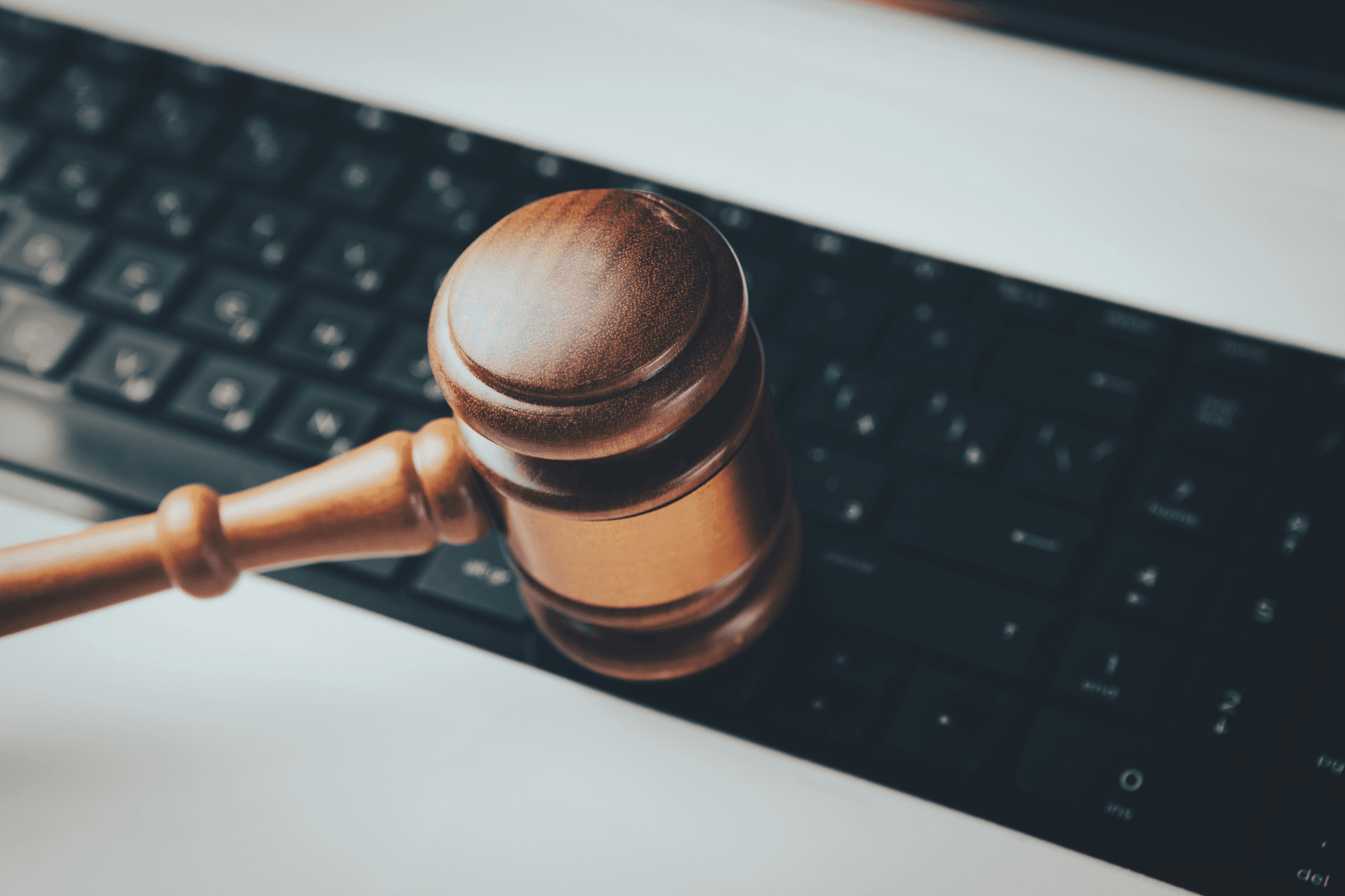Introduction
Navigating the legal landscape in China can feel like trying to find a needle in a haystack, especially for those unfamiliar with its intricacies. Hiring Chinese lawyers is not just a smart move; it’s essential for anyone looking to conduct litigations or manage legal matters effectively in this dynamic environment. With the right legal representation, you can not only protect your interests but also gain invaluable insights into local laws and regulations.
The Importance of Hiring Chinese Lawyers
Understanding the types of lawyers you need is crucial when entering the Chinese market or engaging in litigation. Chinese lawyers bring a wealth of knowledge about local practices, customs, and regulations that foreign attorneys may lack. By hiring professionals who are well-versed in these areas, you can significantly improve your chances of success when you conduct litigations.
Navigating the Legal Landscape in China
The legal landscape in China is complex and ever-evolving, making it imperative to have skilled lawyers by your side. They will help you understand the types of lawyers you need based on your specific situation—be it corporate law, intellectual property rights, or arbitration matters. Proper guidance will enable you to prepare the required documentation efficiently and avoid potential pitfalls that could derail your case.
How to Conduct Litigations Effectively
Conducting litigations effectively requires more than just understanding laws; it involves strategic planning and execution tailored to the nuances of the Chinese judicial system. You must verify the lawyer’s qualifications meticulously to ensure they possess both expertise and experience relevant to your case type. Additionally, retaining the lawyer by signing a retainer agreement lays down clear expectations regarding fees and responsibilities—an essential step for any successful litigation process.
Understand the Types of Lawyers You Need

Navigating the legal landscape in China can be daunting, especially if you’re unsure which type of lawyer to hire. Understanding the types of lawyers you need is crucial for conducting litigations effectively and ensuring that your legal matters are handled by someone with the right expertise. From corporate lawyers to arbitration specialists, each has a distinct role that can significantly impact your case.
Corporate Lawyers vs. Litigation Lawyers
Corporate lawyers primarily focus on business-related legal matters, such as contract negotiations, mergers, and compliance issues. On the other hand, litigation lawyers are your go-to professionals when disputes arise; they specialize in conducting litigations and representing clients in court.
Understanding these differences will help you verify the lawyer’s qualifications more effectively; you wouldn't want a corporate lawyer handling your courtroom drama! If you're involved in a dispute or facing potential litigation, ensure that you retain a lawyer who specializes in this area by signing a retainer agreement that reflects their expertise. This way, you'll have peace of mind knowing that you're armed with the right legal representation.
Specialization in Intellectual Property
In today's fast-paced digital world, intellectual property (IP) has become an invaluable asset for businesses and individuals alike. Hiring a lawyer who specializes in IP law is crucial if you're looking to protect your innovations or navigate complex copyright issues. These experts understand the nuances of IP law and can assist you not only in conducting litigations but also in drafting patents and trademarks.
When considering an IP attorney, it's vital to verify their qualifications by asking about their experience with similar cases or any notable successes they've had. A well-versed IP lawyer can guide you through the maze of regulations while ensuring that your intellectual property rights are safeguarded against infringement or misappropriation.
The Role of Arbitration Lawyers
Arbitration is often seen as a more efficient alternative to traditional litigation; thus, understanding its mechanics is essential for anyone involved in disputes within China’s legal framework. Arbitration lawyers specialize in resolving conflicts outside of court—saving time and potentially reducing costs associated with lengthy trials while still allowing parties to conduct litigations effectively under established rules.
These professionals play a pivotal role throughout the arbitration process—from drafting agreements that govern arbitration proceedings to representing clients during hearings themselves. When retaining an arbitration lawyer by signing a retainer agreement, be sure they have experience with international arbitration if that's relevant to your case—this could be crucial for favorable outcomes! Additionally, always prepare required documentation meticulously; having everything organized will streamline communication between you and your attorney.
Verify the Lawyer’s Qualifications

Checking Bar Membership and Credentials
Before hiring a lawyer, it's essential to check their bar membership and credentials thoroughly. This step confirms that they are licensed to practice law in China and have met all necessary educational requirements. Additionally, understanding their specialization can help you determine if they fit your needs when preparing the required documentation for your case.
Reviewing Previous Case Successes
A lawyer's track record speaks volumes about their capabilities, so reviewing previous case successes is vital. Look for case studies or testimonials that highlight their experience in handling similar cases relevant to yours. This not only boosts your confidence in retaining the lawyer by signing a retainer agreement but also provides insight into how effectively they can navigate challenges during litigations.
Importance of Language Proficiency
In a country as linguistically diverse as China, language proficiency cannot be overlooked when verifying a lawyer's qualifications. A lawyer who is fluent in both English and Mandarin will be better equipped to communicate complex legal concepts clearly and accurately with clients and local authorities alike. This proficiency plays a significant role in ensuring smooth interactions while preparing the required documentation and conducting litigations effectively.
Retaining the Lawyer by Signing a Retainer Agreement

When it comes to retaining the lawyer by signing a retainer agreement, understanding its nuances is essential. A retainer agreement not only formalizes your relationship with your chosen attorney but also outlines the expectations and responsibilities of both parties. This document serves as a roadmap for how you will work together, ensuring that you're well-prepared to conduct litigations effectively.
Key Components of a Retainer Agreement
A comprehensive retainer agreement should include several critical components to ensure clarity and mutual understanding. First, it should specify the scope of services provided, detailing what legal issues the lawyer will address and any limitations in representation. Additionally, ensure that it includes terms regarding confidentiality and conflict of interest—after all, you want to verify the lawyer’s qualifications without worrying about sensitive information leaking out.
Another vital aspect is outlining communication protocols; this helps maintain effective communication throughout your legal journey. You should also look for clauses concerning dispute resolution methods if conflicts arise between you and your lawyer. By paying attention to these key components, you're setting yourself up for success in navigating legal waters.
Understanding Fee Structures and Billing
Understanding fee structures and billing practices is crucial when retaining a lawyer by signing a retainer agreement. Lawyers may charge hourly rates, flat fees, or contingency fees depending on the type of case; knowing which applies helps you budget accordingly. It's essential to clarify how often you'll receive invoices—whether monthly or at specific milestones—to avoid surprises down the line.
Moreover, don’t hesitate to ask about additional costs that might arise during your case—think court fees or expert witness expenses—as these can add up quickly when preparing required documentation for litigation. Transparency in billing ensures that you can focus on conducting litigations without worrying about unexpected financial burdens later on.
Lastly, inquire about payment schedules; some lawyers may require upfront payments while others might offer flexible arrangements based on milestones achieved in your case.
Termination Clauses to Consider
Termination clauses are often overlooked but are vital when retaining a lawyer by signing a retainer agreement. These clauses outline under what circumstances either party can terminate their relationship—whether due to dissatisfaction with services or other unforeseen circumstances—and provide guidance on how this process should be handled legally and ethically.
It's wise to ensure that there are provisions for winding down ongoing matters smoothly if termination becomes necessary; this way, you're not left high and dry while attempting to prepare required documentation without legal support during an ongoing case. Additionally, consider discussing any financial implications related to early termination; you wouldn’t want any hidden fees popping up unexpectedly as you navigate through potential disputes.
Understanding these aspects allows you greater control over your legal representation while ensuring that both parties are clear on their rights and responsibilities throughout your journey together.
Prepare the Required Documentation

When it comes to conducting litigations in China, preparing the required documentation is crucial. This step not only sets the stage for your case but also ensures that you have all necessary materials at hand when working with your lawyer. A well-prepared file can make a significant difference in how effectively you can navigate the legal landscape.
Gathering Relevant Case Materials
To conduct litigations successfully, gathering relevant case materials is paramount. Start by compiling contracts, correspondence, and any evidence that supports your claims or defenses. The more organized and comprehensive your documentation is, the easier it will be for your lawyer to understand your position and strategize accordingly.
Additionally, make sure to include any prior legal documents related to similar cases or disputes you've faced. This may help your lawyer understand patterns or precedents that could influence your current situation. Remember, understanding the types of lawyers you need involves knowing what specific materials they will require to build a strong case.
Importance of Accurate Translation
In international legal matters, accurate translation cannot be overstated when preparing documentation for conducting litigations. Misinterpretations can lead to misunderstandings that might derail your case or even result in unfavorable outcomes. Therefore, it's essential to hire professional translators who specialize in legal terminology and nuances.
Having all documents accurately translated ensures that both you and your lawyer are on the same page regarding facts and arguments presented in court or arbitration settings. Furthermore, verifying the lawyer’s qualifications should include checking their ability to communicate effectively in both languages involved—this can save time and reduce potential errors during litigation processes.
Understanding Local Regulatory Requirements
Understanding local regulatory requirements is another critical aspect of preparing documentation for conducting litigations in China. Each jurisdiction has its own set of rules governing what documents are necessary for various types of cases, whether corporate disputes or intellectual property claims. Familiarizing yourself with these regulations will help ensure compliance and prevent delays.
Moreover, engaging a knowledgeable lawyer who understands these local requirements can streamline this process significantly; they can guide you on what needs to be included based on their expertise and experience with similar cases. This reinforces why verifying the lawyer’s qualifications is vital—ensuring they have a solid grasp of local laws will bolster your chances of success when retaining them by signing a retainer agreement.
Working with AC&E for Comprehensive Legal Solutions

In the complex world of legal representation, choosing a firm like AC&E can make all the difference in how you conduct litigations and navigate the nuances of Chinese law. With a focus on delivering tailored solutions, AC&E stands out for its deep understanding of local regulations and its commitment to client success. By partnering with a reputable firm, you not only ensure that your legal matters are handled efficiently but also gain access to a wealth of resources and expertise.
The Benefits of Choosing AC&E
One major benefit of choosing AC&E is their diverse team of lawyers who specialize in various fields, ensuring that you understand the types of lawyers you need for your specific situation. Whether you're dealing with corporate issues or navigating litigation, their lawyers are equipped to support your needs effectively. Additionally, their extensive network within the legal community allows them to provide comprehensive guidance that can simplify the process and enhance your chances of success.
Another advantage is their commitment to verifying the lawyer’s qualifications before assigning them to your case. This rigorous vetting process guarantees that you’ll work with professionals who have proven track records in handling cases similar to yours. When you retain a lawyer from AC&E by signing a retainer agreement, rest assured that they have both the expertise and dedication necessary to represent your interests vigorously.
Moreover, AC&E emphasizes clear communication throughout your engagement, which is crucial when preparing the required documentation for any legal proceedings. Their team will assist in gathering relevant materials while ensuring accurate translation where necessary—an essential step when dealing with cross-border issues or complex regulatory requirements.
Areas of Expertise and Case Studies
AC&E boasts an impressive range of areas where they excel, including corporate law, intellectual property rights, and arbitration procedures. Their ability to adapt strategies based on client needs means they can effectively guide clients through different types of litigations while addressing specific challenges unique to each case type. For instance, their work on intellectual property disputes showcases how specialized knowledge can lead to successful outcomes for businesses aiming to protect their innovations.
Case studies highlight how AC&E has successfully navigated intricate legal landscapes for clients across various sectors—demonstrating both versatility and effectiveness in conducting litigations on behalf of corporations and individuals alike. In one notable case involving corporate compliance issues, they provided invaluable insights that not only resolved immediate concerns but also established long-term strategies for risk management moving forward. Such examples illustrate why understanding the types of lawyers you need is essential when seeking effective representation.
Furthermore, by verifying the lawyer’s qualifications through these real-world examples—showcasing past successes—you gain confidence in choosing AC&E as your legal partner. Their experience across different jurisdictions equips them with unique insights into local laws while ensuring compliance at every step.
Client Testimonials and Success Stories
The positive feedback from clients who have partnered with AC&E speaks volumes about their ability to deliver results while maintaining strong communication throughout each phase of engagement—especially during critical moments like retaining a lawyer by signing a retainer agreement or preparing required documentation for court appearances. Clients often express satisfaction not just with outcomes but also with how well-informed they felt during each stage; this commitment fosters trust and transparency essential in any attorney-client relationship.
Many testimonials highlight specific instances where clients felt reassured knowing that experienced professionals were handling complex matters on their behalf—allowing them peace of mind as they navigated challenging situations involving litigation or arbitration processes. These success stories reinforce why it’s vital not only to verify the lawyer’s qualifications but also choose those whose approach aligns seamlessly with client expectations.
Ultimately, working with AC&E means more than just having expert representation; it signifies entering into a collaborative partnership aimed at achieving favorable outcomes through diligent preparation and strategic planning tailored specifically toward individual client needs—all integral components when looking at how best to conduct litigations effectively.
Conclusion
Navigating the intricate world of legal representation in China can be daunting, but with the right strategies, you can streamline the process. Understanding how to conduct litigations effectively hinges on knowing what to look for in a lawyer and ensuring you’ve covered all your bases. By focusing on key areas such as verifying qualifications, preparing documentation, and understanding different types of lawyers, you can position yourself for success.
Key Takeaways for Retaining Lawyers
Whether you're facing corporate issues or personal litigation matters, finding a lawyer with the right specialization is crucial. Additionally, verifying the lawyer’s qualifications will help ensure that they have the experience necessary to handle your case effectively.
Another critical takeaway is the importance of a well-structured retainer agreement. This document not only outlines the terms of engagement but also clarifies fee structures and expectations from both parties. Remember that preparing required documentation upfront can save time and headaches down the line—so don’t skimp on this step!
Ensuring Effective Communication with Your Lawyer
Effective communication is key when working with any legal professional; it’s essential for both parties to be on the same page throughout your case. Make sure to discuss how often you'll communicate and through which channels—be it email, phone calls, or face-to-face meetings. This clarity will help build trust and ensure that both you and your lawyer are aligned as you conduct litigations.
Moreover, don't hesitate to ask questions if something isn’t clear; a good lawyer will appreciate your desire for understanding and transparency in their work process. Regular updates about case progress are also vital; they keep you informed while allowing adjustments along the way if needed. Ultimately, fostering open lines of communication will significantly enhance your overall experience.
Future Considerations in Legal Representation
As you plan ahead for future legal needs, consider how changes in laws or regulations might affect your representation strategy over time. Staying informed about emerging trends can help refine how you approach retaining lawyers when new challenges arise or when conducting litigations becomes necessary again down the road.
Additionally, think about building long-term relationships with legal professionals who understand your business or personal needs intimately; this rapport can lead to more effective advocacy in subsequent cases. Finally, always be prepared by keeping essential documents organized and accessible—this preparation will serve as a valuable asset whenever future legal matters come knocking at your door.
